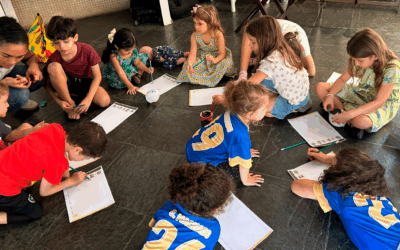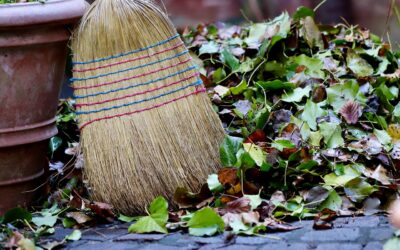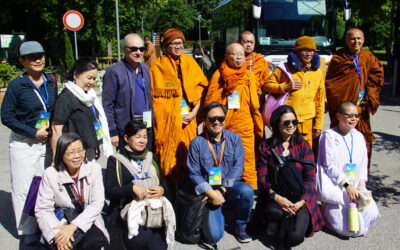 «At this time when universities are affected by an economic, social and cultural crisis, what made you start up this project and what is new about Sophia?» Giorgia, an Italian, the students’ representative, asked the theologian Piero Coda, President of Sophia. She was putting into words the questions of numerous students, interested young people and those about to enrol, all present on 1 March this year in Loppiano for an internet conference call covering the four corners of the earth during the first Sophia Open Day. So, what is new? Bringing together rigorous academic discipline and wisdom – hence the name Sophia – understood as a ‘transdisciplinary’ approach that draws from the roots Christian revelation: this is what is new. Sophia’s mission is to produce men and woman capable of revisioning human destiny, as Piero Coda pointed out in live a video interview. Up to this point 150 students have studied or are currently studying at Sophia, and about 30 of them have already achieved their degrees. «Sophia began years ago with our summer schools, Prof. Coda recalled, and the purpose of these was to relate various disciplines to the charism of Chiara Lubich so as to overcome the fragmentation that can be observed among them. Today the Institute has reached its fourth year and it offers a formation programme that aims at going beyond the ‘schizophrenia’ that can be experienced between academic development and the social, political and economic challenges of the world today».
«At this time when universities are affected by an economic, social and cultural crisis, what made you start up this project and what is new about Sophia?» Giorgia, an Italian, the students’ representative, asked the theologian Piero Coda, President of Sophia. She was putting into words the questions of numerous students, interested young people and those about to enrol, all present on 1 March this year in Loppiano for an internet conference call covering the four corners of the earth during the first Sophia Open Day. So, what is new? Bringing together rigorous academic discipline and wisdom – hence the name Sophia – understood as a ‘transdisciplinary’ approach that draws from the roots Christian revelation: this is what is new. Sophia’s mission is to produce men and woman capable of revisioning human destiny, as Piero Coda pointed out in live a video interview. Up to this point 150 students have studied or are currently studying at Sophia, and about 30 of them have already achieved their degrees. «Sophia began years ago with our summer schools, Prof. Coda recalled, and the purpose of these was to relate various disciplines to the charism of Chiara Lubich so as to overcome the fragmentation that can be observed among them. Today the Institute has reached its fourth year and it offers a formation programme that aims at going beyond the ‘schizophrenia’ that can be experienced between academic development and the social, political and economic challenges of the world today».  There are several new approaches in the educational programme, as presented by some of the Institute’s teaching staff: Judith Povilus, vice-president and provost, Antonio Maria Baggio, professor of Political Philosophy, the theologian Alessandro Clemenza and the economist Giuseppe Argiolas. From next September the master’s degree in ‘Foundations and prospects for a Cultural of Unity’ will have four specialist areas: political studies, trinitarian ontology, economy and management and, in conclusion, the ‘culture of unity’. This last is aimed at students coming from any area of specialization, open to building a new world and willing to highlight the dimension of human relationships. After this presentation several of Sophia’s students spoke. They came from various countries across the continents. Metta, a Buddhist from Thailand, grappling with studying in an environment that has a Christian inspiration, said: «For me studying here is mainly about a relationship of fraternity and these relationships are the language we all, students and teachers, have in common even in the midst of our differences. It’s a dimension I find also in my own religion». Marco, an Italian whose first degree was in Motor Sciences, attends Sophia’s first year: «Looking to the future, the choice to go to Sophia has made me feel that I don’t wish so much to deepen my understanding of a specific discipline. Rather I need a formation that, as much as possible, will open up my cultural horizons and my awareness and make me better placed to face the world of work. At the moment, it doesn’t offer much certainty and so I have to be a self-starter».
There are several new approaches in the educational programme, as presented by some of the Institute’s teaching staff: Judith Povilus, vice-president and provost, Antonio Maria Baggio, professor of Political Philosophy, the theologian Alessandro Clemenza and the economist Giuseppe Argiolas. From next September the master’s degree in ‘Foundations and prospects for a Cultural of Unity’ will have four specialist areas: political studies, trinitarian ontology, economy and management and, in conclusion, the ‘culture of unity’. This last is aimed at students coming from any area of specialization, open to building a new world and willing to highlight the dimension of human relationships. After this presentation several of Sophia’s students spoke. They came from various countries across the continents. Metta, a Buddhist from Thailand, grappling with studying in an environment that has a Christian inspiration, said: «For me studying here is mainly about a relationship of fraternity and these relationships are the language we all, students and teachers, have in common even in the midst of our differences. It’s a dimension I find also in my own religion». Marco, an Italian whose first degree was in Motor Sciences, attends Sophia’s first year: «Looking to the future, the choice to go to Sophia has made me feel that I don’t wish so much to deepen my understanding of a specific discipline. Rather I need a formation that, as much as possible, will open up my cultural horizons and my awareness and make me better placed to face the world of work. At the moment, it doesn’t offer much certainty and so I have to be a self-starter».
Spread real love everywhere
Spread real love everywhere




0 Comments